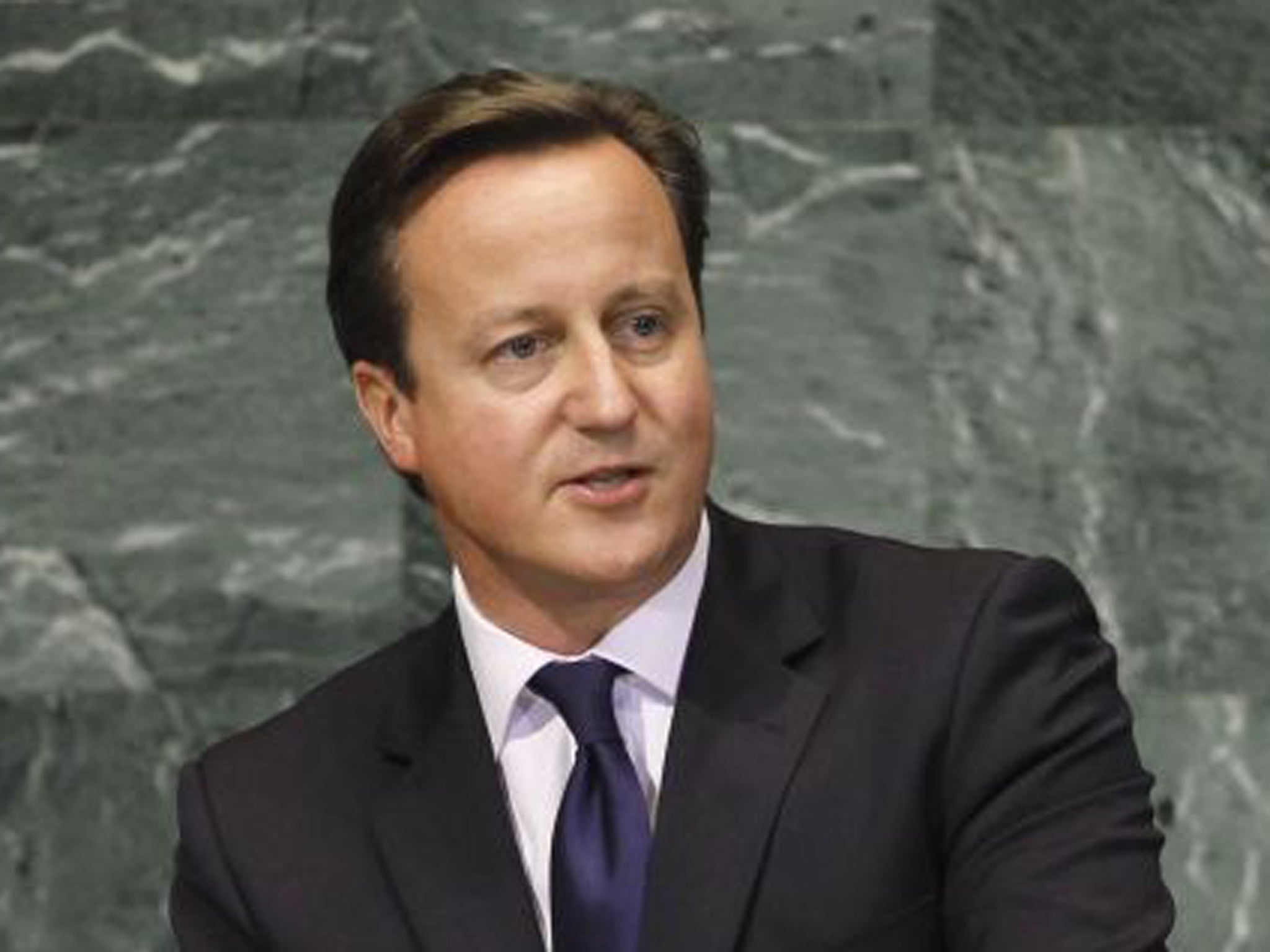'Britain would not collapse outside EU': David Cameron holds out prospect of referendum
Prime Minister rejects criticism from German politicians that he was trying to 'blackmai' the rest of the EU

Your support helps us to tell the story
From reproductive rights to climate change to Big Tech, The Independent is on the ground when the story is developing. Whether it's investigating the financials of Elon Musk's pro-Trump PAC or producing our latest documentary, 'The A Word', which shines a light on the American women fighting for reproductive rights, we know how important it is to parse out the facts from the messaging.
At such a critical moment in US history, we need reporters on the ground. Your donation allows us to keep sending journalists to speak to both sides of the story.
The Independent is trusted by Americans across the entire political spectrum. And unlike many other quality news outlets, we choose not to lock Americans out of our reporting and analysis with paywalls. We believe quality journalism should be available to everyone, paid for by those who can afford it.
Your support makes all the difference.David Cameron today rebuffed demands by Conservative MPs for a referendum on Europe before the 2015 general election, telling them they would have to wait until the next parliament.
The Prime Minister sought to end the confusion over his stance on Europe ahead of a much-anticipated speech he is due to make on the issue next week. In media interviews, he insisted he had nothing to fear from a referendum but made clear it would not take place until he had negotiated a “new settlement” between Britain and the EU. Some Tory MPs, including the former Europe Minister David Davis, have called for an early referendum to endorse the Government’s demands for a new deal, to be followed later by another public vote on the result of its negotiations with its EU partners.
Mr Cameron told BBC Radio 4’s Today programme that an immediate “in or out” vote would be a “false choice”. He added: “Right now, I think there are a lot of people who say ‘well, I would like to be in Europe, but I’m not happy with every aspect of the relationship, so I want it changed’ – that is my view.”
Although Britain would not “collapse” if it left the EU, he insisted that he wanted it to remain a member because it was in the country’s interests to stay in the single market. “I’m also optimistic and confident that we can achieve changes in the European Union to make sure that Britain feels more comfortable with our relationship with Europe – I’m confident we can do that,” he said.
The Prime Minister rejected criticism from German politicians that he was trying to “blackmail” the rest of the EU by threatening to leave if British demands for a return of powers to London were not met. He denied being isolated on that, saying Germany and the Netherlands had made similar proposals.
Mr Cameron said: “I’m not blackmailing anybody. Britain, just like every other European country, has a perfect right to say ‘we are members of this club, we are prominent members, we pay a large bill for being a member of this club; we’re perfectly entitled to argue it needs to change’.
“This is not just about Britain’s relationship with Europe, this is also about the whole way Europe needs to change in order to deal with the global race and the competition from the south and the east and the fact that Europe’s economies are too bureaucratic, too sclerotic. We need to change that, and that’s an argument that I think will have great strength across Europe.”
Labour has warned that Mr Cameron could put the UK on a “slippery slope towards the EU exit door” if the new membership terms were rejected in a referendum. Douglas Alexander, the shadow Foreign Secretary, said the Prime Minister’s interviews raised more questions than they answered. “He's not in control of the agenda or even his party. The gap between his back benchers and our EU partners remains unbridgeable,” he said.
Join our commenting forum
Join thought-provoking conversations, follow other Independent readers and see their replies
Comments